| Except for monthly Vital Conversations convened by David Nelson, CRES programs arise by request. Our management principle is "management by opportunity." Every year we are delighted by the number of opportunties given to us, as, for example, last year's list demonstrates. (Of course we also provide free consulation to organizations and other services as requested, not listed on our public website.) |
Transcendent meanings from COVID-19?
#MLK 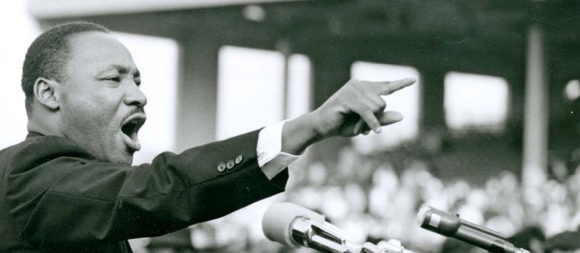 King Holiday Essay — 2022 January 7 and Jan17 Download a PDF of Vern's 2-page summary of the genius of the spiritual approach of Martin Luther King Jr by clicking this link. You can also read the Letter from a Birmingham Jail here. February 1-7  To celebrate World Interfaith Harmony week, we offer one of our most cited essays, "Stealing Another's Faith." The question of honoring without misappropriating material from others is not so easy, and this essay raises awareness so faiths can be less in conflict and more in harmony. Read, download this PDF, and share this important essay by Vern -- with excerpts from Huston Smith and Harvey Cox. #220208 A Martian Muses on Monotheism
What would a Martian report after surveying the religions of our
planet? How are monotheistic faiths similar to one another and
different from primal and Asian faiths? Vern has seen a purloined copy
of the Martian's study, and discloses these findings to the group,
offers an exercise for individual assessments of the strength of
various dimensions of faith in one's experience (creed, code, cultus,
community), and welcomes questions and responses.  2022 Febuary 8 Tuesday 1 pm Zoom link posted here by Monday. Retired Clergy of All Faiths -- guests welcome Zoom Meeting Recording may be available soon. Vern suggestions preparing for the program by having paper and marker handy. You can draw two empty circles in advance. A summary of the Martian report is here below. following a few reminders about "religion." MORE HERE. CAVEATS FOR THE STUDY OF “RELIGION” 1. “Religion” as often understood today developed from the Reformation’s distinction between secular and church domains, and from the West’s Enlightenment categories of thought. 2. Religions don't differ from each other so much by offering different answers to the similar questions as by exploring different questions. Religions are like more like different games and sports (chess, baseball, charades, tennis, swimming), with different rules, scoring, and outcomes, rather than like a football league with different teams playing each other. 3. Religions change throughout history. 4. Religions are influenced by one another and sometimes incorporate elements from each other. 5. Within a single tradition, many variations are common. 6. Boundaries around religions vary, some tight, some porous. 7. Even religions that emphasize theoretical concerns retain elements of the earlier unitive (mystical, "peak" experiences), enactive (ritual), and narrative (story) developments. 8. Scholars who seek to identify components or dimensions of religions sometimes use the scheme of 4 C's: Creed (concepts or "beliefs"), Code (rules, moral expectations), Cultus (ritual practices), and Community (informal and institutional shapes and boundaries of adherents relating to one another). MOST RELIGIONS are not as focused on "beliefs" as much as many Christians.  #Monotheisms From the Martian Report: CHARACTERISTICS OF MONOTHEISM 1. Monotheisms find the sacred in historical events and processes. 2. Most monotheisms identify a singular or pivotal event in history. 3. Most focus on the disharmony between God's will and the existing social order. 4. Revelation is mediated, often creating interpretive and doctrinal concerns. 5. Usually a covenant is the basis of the community. 6. Eschatological expectations and incipient dualism may be weak or strong. 7. Mysticism is not normative, and often secondary, perhaps even judged heretical. 8. Stephen Prothero identifies the problem each of the three main monotheistic faiths seeks to answer. For Judaism, the problem is exile from God; the solution is keeping the commandments. For Christianity, the problem is sin; the solution is salvation through Christ. For Islam, the problem is self-sufficiency; the solution is submission to the will of God. T W
O E X A M P L E S O
F T H E C O V E N A N
T E M P H A S I S
#ZenHappiness Zen and Happiness: Practical Insights and Meditations to Cultivate Joy in Everyday
Life Reviewed by Vern Barnet The Rev. Dr. Joshua R. Paszkiewicz
is a multireligious cleric and scholar uniquely trained and transmitted
in the Zen traditions of Japan, Korea, and Vietnam. He has studied and
taught Zen throughout the world and has served as an official delegate
to numerous notable events, including the first White House Buddhist
Leaders Conference and the United Nations' World Day of Vesak. Dr.
Paszkiewicz has earned a diverse array of academic degrees and
certifications in the fields of religion, psychology, education,
business, and healthcare. On a day-to-day basis, Joshua maintains a
private practice of spiritually integrative psychotherapy, teaches
traditional life protection arts, and serves as spiritual director and
consultant to numerous students, teachers, and communities around the
globe. He can be found online at DRJRP.com. Josh is known locally through his many, many paths of service, including assisting the Interfaith Council through
its strategic planning process. I was fortunate to have him as a
graduate student at Central Baptist Theological Seminary where he was
less my student than my teacher. CRES minister emeritus #abortion What does the Supreme Court abortion decision mean for religious freedom?
CRES senior associate minister President, The Human Agenda Religious leaders in 2023 suit against Missouri's abortion ban #220719  About Worship Via Zoom, Vern visits Dr Rebecca Johnson's
class on worship at Central Baptist Theological Seminary where he was
Assistant Professor of Religious Pluralism. Two areas of
interest around which much of his career has revolved are world religions and worship.
Vern was one of five founding members of the Congregation of Abraxas,
edited a collection of papers on worship, and occasionally lectures on
the subject. A formative experience at Rockefeller Chapel at the University of Chicago during the Vietnam War, insights about the nature of the sacred from Vern's professor and friend, Mircea Eliade, the notion of sacramentalism from Fr Michael Himes, insights from Pentecostal, Quaker, Shaker, and liturgical practices, encounters with rites from world religions, and a background in parish ministry guide the discussion. One way of understanding 21 years since 9/11 While the 9/11 attacks 20 years ago opened the gates of hell, the way our government has responded has brought us inside hell's domain. The smoke from that day, the acrid fumes, amplified into war, brings us purblind to the charred and hobbled Body Politic. How do we understand what has happened? How do we move forward?
1. Before 911, terrorism had been dealt with as a CRIME, internationally and at home. The violation of life and property in an otherwise orderly society makes the terrorist an especially despised outlaw. We employ a legal system to assure justice by punishing the criminal and removing the criminal from society. International courts have done the same. 2. But since September 11 we have used a WAR metaphor. Of course the metaphor is hardly new. We love war. We have fought the war against poverty and the war against drugs, though it is hard for us to admit defeat, even though Vietnam and Afghanistan are history now. We still fight the war against cancer, against crime, against . . . you name it. But a war against terrorism was new. The metaphor had power because we struggled not just against isolated attack but against an organized force seeking not just advantage through harm of a target but rather destruction of a government or civilization. Though we ourselves use violence, we assumed our own righteousness would bring us victory over evil. Both of the metaphors of crime and war too easily commend themselves because they are simple, and rest on the assumption that we are wholly good — and our opponents are completely evil. 3. A third metaphor might come closer to the complexity of the situation: DISEASE. Here the metaphor suggests not two separate, competing powers but of all humanity as a sick body, within the organs of communities, cities, and nations, afflicted in various ways, degrading or sustaining each other in different degrees, infected with individuals and groups poisoned (using Buddhist language) with greed, fear, and ignorance. Now, with COVID, we are learning that, as Martin Luther King said, “Whatever affects one directly, affects all indirectly.” Just so, CRES insists that the three great crises of our time, in the environment, in personhood, and in the social order, are all intertwined. And that the world's Primal, Asian, and Monotheistic traditions, respectively, provide the therapy to heal the planet, revivify personhood, and restore social order. Let us bring the healing powers of generosity, fellowship, and understanding to one another, expanding a circle of joy in service. Vern
On the first anniversary of 9/11, CRES opened a day-long observance beginning with a water ceremony between City Hall and the Federal Justice Center, later shown on national CBS-TV. Click here to see a 3-minute excerpt from that ritual.
Vern offers his conclusions
from over 50 years of experience and study: in a troubled world, what paths
lie forward? and how can one dare offer praise for the intertwined mix
of the horror and the beauty of existence?
Vern Inverviews Alvin Brooks on His Memoirs 2022 August 8 Sunday morning at 10:30 Masks Required -- Proof of Vaccines Required All Souls Unitarian Universalist Church, 4501 Walnut
For the sermon, Vern Barnet, the developmental editor for Al's memoir, Binding Us Together: A Civic Rights Activities Reflects on a Lifetime of Community and Public Service, interviews Al, who sign books for any who wish to purchase a copy. The book's website is https://www.bindingustogetheralbrooks.com/ . #220807photo Here is a photo from the morning: 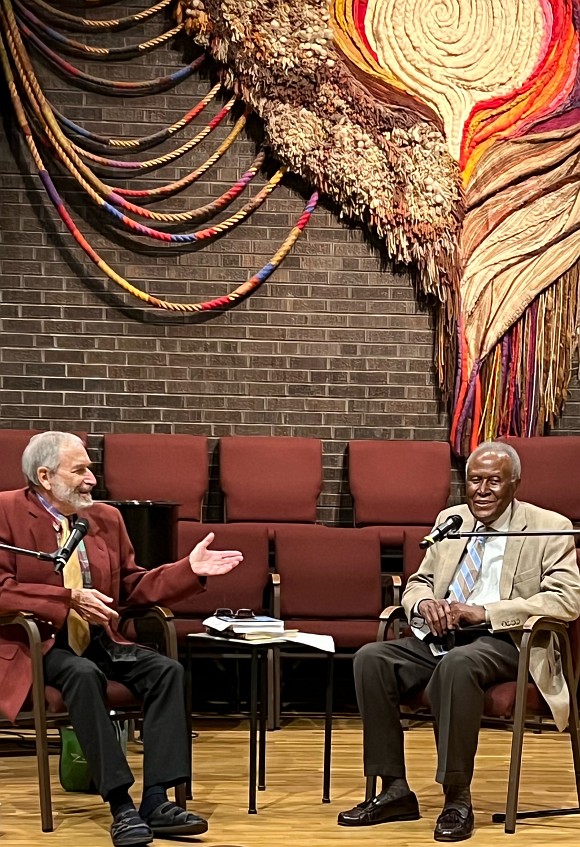 #220913 Annual TABLE OF FAITHS Fundraiser and Signature Event Stoney Creek Hotel & Conference Center - Independence, MO the Greater Kansas City Interfaith Council now independent but originally a program of CRES. 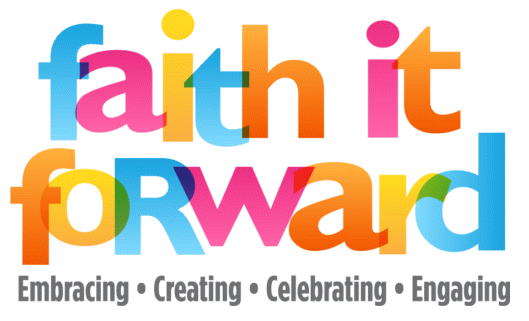 The Council writes -- Interfaith
cooperation is key to transforming this religiously diverse society
into a more just, kind, and pluralistic nation, and world. We ask
ourselves what it would look like if every American, regardless of their
religion or no religion, or worldview, was inspired and equipped to:
 SevenDays - Table of Faiths Award
SevenDays® overcomes hate by promoting kindness and understanding through
education and Dialogue. SevenDays® was born as the result of a hateful
act when a white supremacist murdered Reat Underwood, his grandfather
Dr. William Corporon, and Terri LaManno on April 13, 2014, outside of
Jewish facilities. In the aftermath, two families and our community
joined hands and hearts to shine a light on the darkness of hate. #DavidNelsonHonoredSevenDays® is now entering its ninth year of countering hate through kindness, education and events. We are laser focused on getting our kindness resources and curriculum for K-12 grades into the schools across the metro. It is youth who will change our world. SevenDays® events will take place in April 2023.
Some images from the Table of Faiths dinner celebrating David with the Steve Jeffers Award 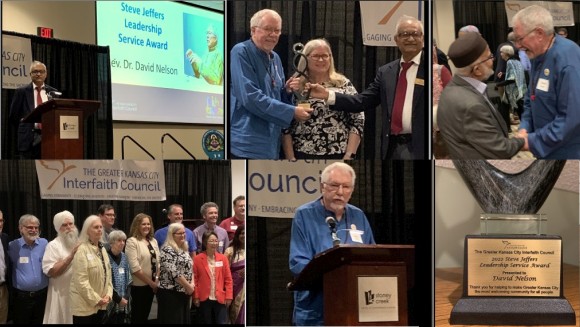 The citation reads The Greater Kansas City Interfaith Council 2022 Steve Jeffers Leadership Service Award presented to David Nelson Thank you for helping to make Greater Kansas City the most welcoming community for all people A BRIEF HISTORY OF THE Table of Faiths EARLY YEARS -- #CouncilPhoto1989_____________________________________________________________The first Table of Faiths event, with David Nelson as convener, was a luncheon at the Marriott Muehlebach Hotel downtown Nov 10, 2005. Alvin Brooks, one of the co-chairs (Gayle Krigel, Mahnaz Shabbir, and Chuck Stanford), welcomed guests. Mayor Kay Barnes was the keynote speaker and presented the first Table of Faiths Award to Vern Barnet. The second Table of Faiths luncheon, Nov 14, 2006, honored Don and Adel Hall and Ed Chasteen. The third Table of Faiths luncheon, Nov 7, 2007, honored Alvin L Brooks and The Kansas City Star. The fourth Table of Faiths luncheon, Nov 13, 2008, included a presentation of Donna Ziegenhorn's play, The Hindu and the Cowboy. Honored were Robert Lee Hill and the Shawnee Mission Medical Center, and Steve Jeffers (1948-2008) was lovingly remembered. The fifth Table of Faiths luncheon, Nov 12, 2009, introduced The Steve Jeffers Leadership Award, given to Ahmed El-Sherif. All Souls Unitarian Church was also recognized, and Allan Abrams (1939-2009) was lovingly remembered. The sixth Table of Faiths luncheon, Nov 11, 2010, honored Notre Dame de Sion High School with the Table of Faiths Award and Queen Mother Maxie McFarlane with the Steve Jeffers Leadership Award. The seventh Table of Faiths luncheon, Nov 10, 2011 honored the Kansas City Public Library with the Table of Faiths Award and Donna Ziegenhorn with the Steve Jeffers Leadership Award. The eighth and last Table of Faiths luncheon, Nov 8, 2012, presented the theme of "Spirituality and the Environment: Caring for the Earth, Our Legacy." The Steve Jeffers Leadership Award was given to Mayor Sly James and the Table of Faiths Award went to Unity Church of Overland Park. There was no Table of Faiths event in 2013. Beginning in 2014, Table of Faiths events were no longer major downtown civic luncheons involving elected and cultural leaders. With a longer evening format, the first in the new Table of Faiths dinners was held May 8, 2014, at Unity Village. --CRES ARCHIVES Vern Barnet founded the Council
in 1989 as a program of CRES and is Council Convener Emeritus. The Council newsletter has
published his brief notes about three
milestones in the early history of the Council.
#220916 Biannual Lectures for SoulJourners Sophia Center at Mount St Scholastica 2022 September 16-17 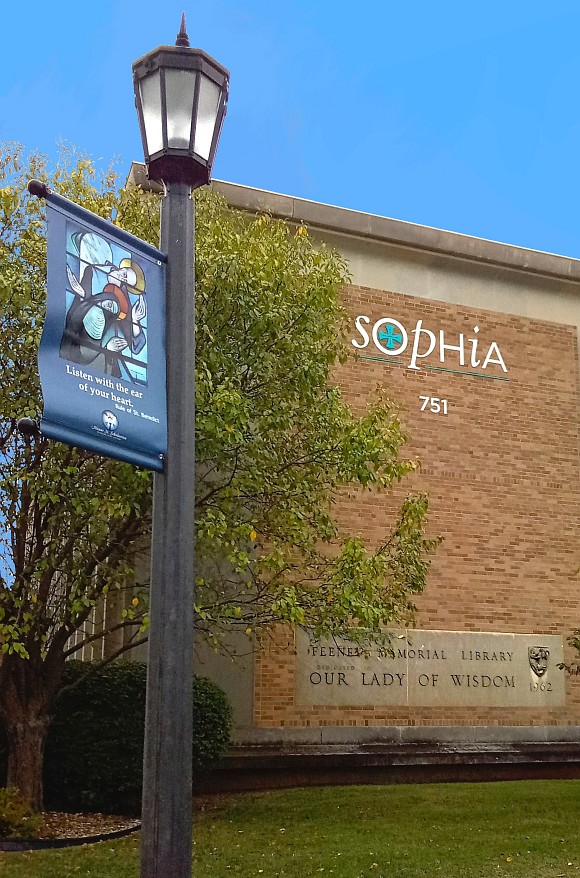 SoulJourners is an ecumenical formation program for spiritual directors offered by the Benedictine sisters at Sophia Center. Spiritual Direction is a one-to-one relationship in which a person trained in the art of this form of spiritual companionship assists another person in the search for deeper awareness of the Transcendent, exploring the spiritual dimensions of human life as it is lived. One part of the three-year study includes an encounter with an approach to religions of the world. Again this year, Vern had the honor and pleasure of presenting participatory lectures. With appropriate scholarly caveats, Vern used the scheme of the three families of faith, relating them to the three crises of our time, posing questions to the participants, and answering some. Anyone wishing any of the handouts listed below for one's own study need only email Vern. Many of these materials were provided as references as time permitted only some to be used explicitly. In addition, because of the great questions, printed images from Vern's eight-pound photo file were displayed as needed. * Three texts epitomizing the three families of faith (pages 1-3) * Thumbnail descriptions of the sacred in two dozen traditions (4) * Bibliography (5) * Quiz for fun and chart of the three families of faith (6) * Notes for the study of "religion" (7) * About "theologies of [world] religions" (8) * Monotheistic religions compared (9) * "Awe is the Cure" essay (10) * Selected images from several faiths (11) * Religious demographics (12) Vern's keynote presentations were part of the weekend including gracious lodging, prayer, praise, spiritual direction skill building, small process groups, advisement, free time, and meals -- delicious, Vern reports. Here is the quiz. The answers are here. 1. What religion uses the Tanakh? 2. Name one sacred text of Hinduism. 3. What Qur’an is the chief text for Islam. What is the secondary? 4. In its examination of responses to 9/11, what metro area did CBS TV select to feature on his half-hour special? 5. What are the four Noble Truths of Buddhism? 6. What are the first two clauses of the First Amendment? 7. What were the main religions of slaves brought to the US? 8. How many mosques does the Kansas City area have? 9. How many Hindu temples does the Kansas City area have? 10. What major religion observed a major festival August this year and why does its date vary? 11. Martin Luther King Jr took inspiration from a leader of what non-Christian faith? 12. When was the earliest Muslim presence in North America? 13. What religion uses a 9-pointed star as its symbol? 14. After contact with what ancient religion were the Hebrew people called Jews? 15. What is the largest Muslim country in the world? 16. What was the key to social order in Confucian teaching? 17. What religion typically and reverentially emphasizes the relation between plants, animals, humans, and all aspects of the landscape? 18. What religion’s main divisions are Shvetambar and Digambara, and how do they visibly differ? 19. A leader of one religion famously said his faith had no theology; rather it had dance. He offered a prayer for the Challenger astronauts. What was his religion? 20. What religion is renowned for its fighters, especially during the 19th Century? 21. What are the three largest religions on the planet? 22. What are the three most important religions in the US? 23. What metro area was selected by Harvard’s Pluralism Project and Religions For Peace-USA at the UN Plaza for the nation’s first “Interfaith Academies” for religious professionals and for students? 24. The major American divisions in Judaism are Orthodox, Conservative, and Reform. Which was the first to organize here? 25. Zubin Mehta, emeritus music director of the Israel Philharmonic Orchestra, comes from what religious tradition? #221001 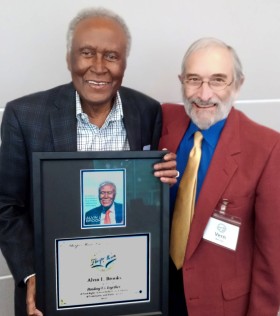 FIRST PRIZE Thorpe Menn Literary Excellence Award 2022 October 1 Among twenty-six highly competitive nominations, congratulations to Al Brooks for his first place recognition for his book, Binding Us Together: A Civil Rights Activist Refects on a Lifetime of Community and Public Service at a wonderful luncheon at the Woodneath Auditorium at the Story Center, Mid-Continent Public Library. Al especially noted John Dill, of blessed memory, who suggested the title for the book. In his acceptance remarks, Al told a humorous story (about a religious horse!) occasioned by the remarks of the keynote speaker. Al has a story for every occasion! The Thorpe Menn Literary Excellence Award was established in 1979 by AAUW-KC to honor Thorpe Menn (1912-1979), long-time book editor of the Kansas City Star, who supported all aspects of Kansas City’s cultural life, especially authors and artists. This is the 44th year of the awards. Also recognized were Theresa Hupp and Steve Paul for their recent books. Lisa D Stewart, first place winner last year, was the keynote speaker. Mark Livengood, Story Center Director, welcomed everyone, along with AAUW KC President Corinne Mahaffet. Patty Cahill was the facilitator and Jane McClain was the story teller. Vern Barnet, developmental editor for Al's book, was delighted to join in the celebration. #GenevaGermany Our former intern, Geneva Blackmer . . . 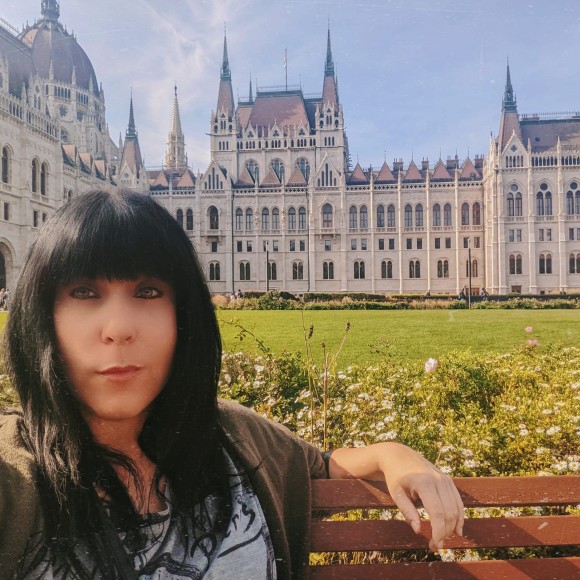 . . . in front of the Hungarian Parliament in Budapest. She is resident in Bonn, doing course work and doing research as she completes her PhD. #FourRemembrances #Dean D Dean Tollefson March 1, 1932 - September 16, 2022 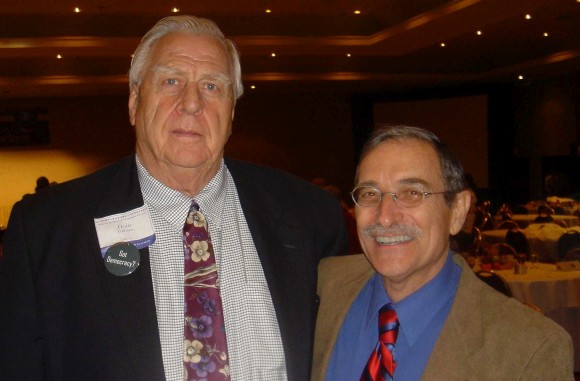 I'll never forget Dean driving from home in Colorado Springs solely to surprise me Below is the obituary in The Gazette, Sept 25.at the Marriott Muehlebach and to celebrate me as I received the Interfaith Council's first Table of Faiths award from Kansas City Mayor Kay Barnes, Nov 10, 2005. One winter when I was serving a church in Johnson County, he and his wife presented their baby for a "naming" ceremony -- an equivalent of baptism. It had just snowed, so -- I forget whose idea it was -- I scooped up some pure white snow and let it melt for use in the rite, and such appropriate unorthodoxy marked Dean's approach to everything. When Dean was on the board of the church, after favorable discussion of a plan I had offered, after the matter was settled, in a (mock?) angry (sarcastic?) tone, Dean said, " I want you to come up with another brilliant idea next month." I was shocked and a bit frightened by what came across as a threat. Only later did I see what a loving compliment it was. One of my "many brilliant" ideas was to develop lay leadership; Dean took the training, but he didn't like the "para-minister" designation, so Dean and I settled on the term for him as "counsel minister." With that credential, in retirement in Colorado Springs, he served many couples -- may I say "brilliantly" -- as wedding officiant. In addition to tales of such he shared with me (I was blessed to visit him and Brenda several times), he told me of how he -- my words -- drew parent and child close in devotion by playing Santa in a department store. Backing up again to my parish days: in another Christmas season, it was time for my to announce my resignation. Dean was at the pianist that morning; and the last hymn, right after the sermon which ended with my announcement, was "Joy to the World." Never caught off-guard, Dean played the hymn through once in a minor key, a provocative way to mesh sorrow and disappointment (for some, at least) with humor, which got us through an awkward situation. Before Dean and Brenda married, Dean lived with, and cared for, an uncle with Alzheimer's, and I visited with them for several days. I was astonished that Dean, who could be so direct and brash and even offensive, showed such extraordinary attention, understanding, patience, and love for someone whose mind lived in a world long gone but repeated moment by moment. 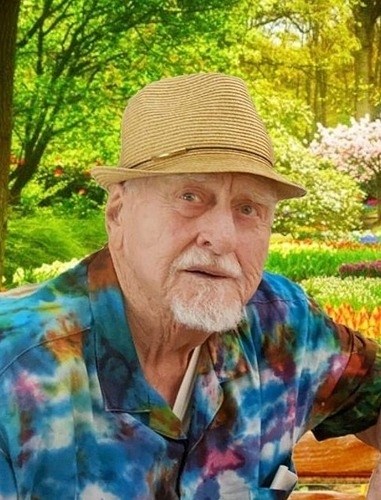 Dean Elwood Tollefson of Colorado Springs passed peacefully at home after a recent diagnosis of acute leukemia. Dean Elwood Tollefson of Colorado Springs passed peacefully at home after a recent diagnosis of acute leukemia.Dean's 90 years of adventures started with a home birth on the farm in Willow Lake, South Dakota, to Ada Anderson Tollefson and Morgan Lorenzo Tollefson. Dean was playing the piano and singing harmony by ear at age 7 and later performed in a vocal quartet while a student at Augustana College, where he graduated with a double major in sociology and philosophy/religion. Dean was a legal officer for two years in the Marine Corps, after which he pursued doctoral studies at Southern Illinois University in college administration and philosophy. Dean's formal career centered on inter-collegiate cooperation and consortium work, first as Vice President at the Kansas City Regional Council for Higher Education and then as the Executive Director of the Union of Independent Colleges of Art. After moving to Colorado Springs in the mid-1980s, Dean cared for an uncle and his mother. He subsequently taught philosophy at Pikes Peak Community College and served as community chaplain to perform numerous inter-faith weddings and naming ceremonies in the Colorado Springs area. Dean was a man of many passions and strong opinions. He was a voracious reader, lover of music and art and enjoyed listening to and exploring new thoughts and ideas. A creative problem-solver, he could always think outside the box and find the good in people. He and Brenda traveled frequently, visiting family and friends and creating new connections along the way. Dean's active community engagement included offering philosophical courses for Pillar; facilitating spiritual exploration; and working to strengthen the interpersonal bonds that are the backbone of a community. Dean was a long-standing member of the Sons of Norway, ACLU, the League of Women Voters, the Colorado Springs Chorale, the Kansas City and Colorado Springs chapters of the United Nations Association, and Pikes Peak Detachment 29, Marine Corps League. Dean is survived by his loving and devoted wife of 31 years, Brenda Mensink; sister Rosalie Brodin; children Nancy (Randy Switser), Tod, Daniel (Linda), Eric, and Ingrid (Troy Cusey), daughter of his ex-wife Serena Sutton; grandchildren Mariann, Sara, Nikki, Jakob, Bobbi, Berit, Brokk, Clara and Berend; and 12 great-grandchildren. Dean was pre-deceased by his ex-wife Carol Fedde, his sisters Arla Mae Shultz and Claryce Stormo and eldest son, Timothy. An open house celebration of Dean's life will be held Sunday October 2nd from 1pm to 3pm at the Sons of Norway Lodge, 1045 Ford St., Colorado Springs. Internment is planned for summer 2023 at Collins Cemetery in Willow Lake, South Dakota. Donations may be made to a charity of your choice supporting music, animal welfare, veterans, and/or community gardens. FUNERAL HOME - Cappadona Funeral Home - 1020 E. Fillmore Street - Colorado Springs, CO SERVICE - Celebration of Life - Oct. 2, 2022 Sunday 1:00 p.m. - 3:00 p.m. - Sons of Norway Lodge #EdChasteen Ed Chasteen 1935-2022 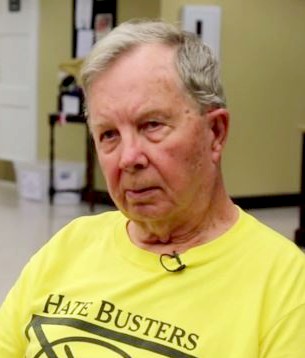 2022 October 12.-- Ed Chasteen has died. Ed's many friends
and students will certainly agree that he was remarkable, determined to
make a difference in helping diverse folks like each other, within and
beyond "Greater Liberty." Ed accepted the role of "Amity Shaman" for CRES. 2022 October 12.-- Ed Chasteen has died. Ed's many friends
and students will certainly agree that he was remarkable, determined to
make a difference in helping diverse folks like each other, within and
beyond "Greater Liberty." Ed accepted the role of "Amity Shaman" for CRES. For thirty years, Ed was professor of sociology at William Jewell College (1965-1995). His favorite book was Uncle Tom's Cabin. He was president, founder, publicist, and community organizer for HateBusters, Inc. His easy-to-read book, How to Like People Who Are Not Like You, was a major contribution to diversity efforts, and especially prized at CRES for its usefulness in interfaith appreciation. One of many articles to appear about Ed and his determined work (this one with a brief video) is Who You Gonna Call? -- HateBusters! Some of his adventures are recounted in his My Life on a Bicycle. Ed received the 2006 Table of Faiths Award by the Greater Kansas City Interfaith Council. Amity Shaman Ed was a cherished member of the CRES team, and his bio and writing appear on our site here, including his "If I were a Rich Man" and several longer essays. 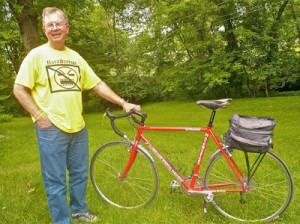 Our friend Anton Jacobs writes: Our friend Anton Jacobs writes:I just learned that a former colleague and one of my best friends died this morning: Mr. Hatebuster himself, the Rev. Dr. Ed Chasteen. I called him "Lord Edgar," which he tolerated with grace since he didn't like to be called Edgar, just Ed. He was one of the best human beings I've ever known. I held him in high esteem even before I met him. Then I had the pleasure and the honor of working in the same academic department with him for seven years. We both left the college at the same time but continued to hold our weekly "Sociology Department Meetings" over breakfast for many years. He lived a life of crusading to combat hate wherever it appeared and to nurture community and gracious acceptance of others who are different from us. His best book is titled, How to Like People Who are Not Like You. His regular Human Family Reunions graced the lives of many here in Kansas City and elsewhere. His frequently expressed vision for people was that they would be free to go anywhere and talk with anyone about anything and feel safe. He continued his work right up to the end as fervently as he was able, having struggled with MS for many years. He would quote from the poem by Dylan Thomas, "Do not go gentle into that good night, Old age should burn and rave at close of day; Rage, rage against the dying of the light." Insofar as the USAmerican culture has less hate in it, he did more than his part to make it so. He gave it his all. I cannot begin to express how spiritually enriched my life has been because of Ed Chasteen! Letter to the Editor: Led the fight The Kansas City community lost a role model last week. Dr. Ed Chasteen passed away on Oct. 12 at age 86. Ed was a longtime sociology professor at William Jewell College and a regular presence in the Kansas City civil rights community. He founded Hatebusters, an organization dedicated to responding to acts of hate through faith and solidarity. He held annual Human Family Reunions, welcoming everyone regardless of color, class, creed or country. He also had multiple sclerosis but remained undeterred, riding his bicycle nearly everywhere he went. I met Ed in 1986 as a freshman. He impressed me so much in his Intro to Sociology class, I worked for him for three years. When I started, he'd spent the previous summer riding his bike from Florida to Washington state with only two pennies in his pocket, determined to rely on the goodness of strangers to feed and house him. Many people thought it unwise, but he was right, and his Two Penny Odyssey was a success. That was Ed. With positive role models seemingly hard to come by, Ed Chasteen's compassion, perseverance and decency still inspire me every day. God bless you, Ed. You will be missed. -- Jos Linn, Kansas City, October 16, The Kansas City Star, p21 A note from David Nelson I last saw and visited with Ed at the Greater Kansas City Interfaith Council dinner. He taught us and challenged us love even those we could not like. He learned that from Jesus. Ed, you will be missed and never forgotten. No services planned He donated his body to KU Med. Family suggests "Go ride a bike, spend time with family, do something for someone else . . . ." #JerryGrahber Deacon Emeritus Jerry Grabher 1935-2022 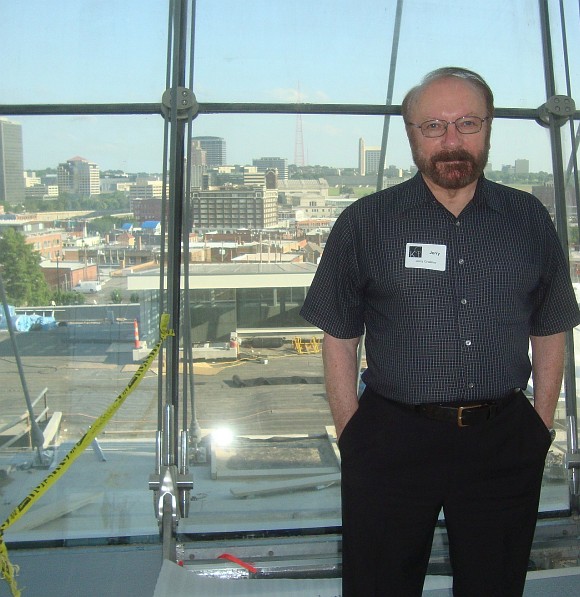 2022 Oct 10.-- I had Jerry's birthday card made for next month when I learned a few moments ago Jerry has died. I last saw him just before he was moved to Topeka and am so grateful for that visit. The photo above is of Jerry when he and I toured the Kauffman Center for the Performing Arts July 14, 2011, two months before it opened to the public. Jerry took me to many Symphony and other performances there since we met the first day he served as deacon at Grace and Holy Trinity Cathedral in 2009. In the decade of our friendship, Jerry and his enthusiasms -- and his red car -- were a regular part of my life; and like his many friends, I will miss him immeasurably. Jerry and his twin (who died many years ago) were born in Nebraska. As a farm boy, he loved listening to classical music on the radio. His farming family background gave Jerry a practical turn to his ministry. He was ordained and became a Methodist missionary, learned Swahili, and was posted in Africa, narrowly escaping from the Congolese civil wars with fighting at his back as he made it through the border alive. Later he served in the Philippines. Back in the US, he saved a youth camp from insolvency which he then ran for several years, wrote training manuals for the Methodists, and served on several boards. From those years, and seminary work, he gained strong opinions on the role of bishops, the tenure of pastors, and the length of sermons! 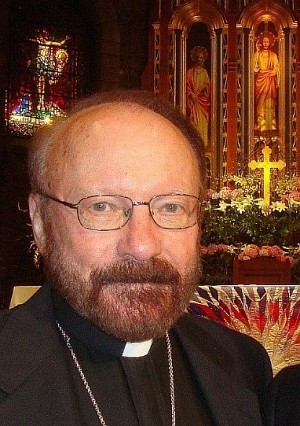 Jerry also believed in books that opened flat, so he would
often take a book and have the spine removed (or have the book copied)
and then spiral bound. Bless him, I have several of these! I first
learned of this admirable quirk when I signed up for Jerry's course on The Rule of Benedict, which was extended a second year. Although I had studied the Rule
40 years earlier, he and the way he involved the class made it a newly
living practice. He took the class to Conception Abbey for a memorable
visit including interviews with several of the bothers there. Jerry was
a Benedictine oblate.
Jerry also believed in books that opened flat, so he would
often take a book and have the spine removed (or have the book copied)
and then spiral bound. Bless him, I have several of these! I first
learned of this admirable quirk when I signed up for Jerry's course on The Rule of Benedict, which was extended a second year. Although I had studied the Rule
40 years earlier, he and the way he involved the class made it a newly
living practice. He took the class to Conception Abbey for a memorable
visit including interviews with several of the bothers there. Jerry was
a Benedictine oblate.From his experience at the Saint Paul (United Methodist) School of Theology, and particularly through a professor, Fr Bruce Rathjen, who was serving as rector at St Mary's Episcopal Church, Jerry eventually joined and was ordained a deacon in 2002 to serve there for several years, followed by 10 years at Grace & Holy Trinity Cathedral from 2009, where he served both at the Holy Table and in reading the Gospel, and in leading and arranging many programs in adult formation. After a stroke, he served mainly at the Holy Table and continued adult formation. He was made Deacon Emeritus in 2020 or 2021 (I had transferred from the Cathedral to St Paul's in 2020). The photo above is from Easter Vigil, 2011. Some years ago Jerry had asked me to assume durable power of attorney if needed and to be executor of his will. I did sign a few checks, but as circumstances developed, it seemed better for his two daughters to assume these duties. 221203 IN MEMORY OF JERRY GRABHER.-- David Nelson's Zoom Morning Prayer December 3 Saturday was in memory of Jerry, whose birthday would have been Nov 29. Folks from around the country gathered by Zoom to commemorate our beloved friend, teacher, and model of Benedictine hospitality and joy in others. A MEMORIAL SERVICE was held 2023 Feb 16 Thursday 2 pm at Grace and Holy Trinity Episcopal Cathedral. The obituary in the printed program appears below. Making visible what we all saw in Jerry, this slightly altered
photograph of the Nebraska farm boy in jeans at Conception Abbey in 2013 gave
Jerry a good laugh, despite his own deep humility and focus on others
as a way to see God.
Vern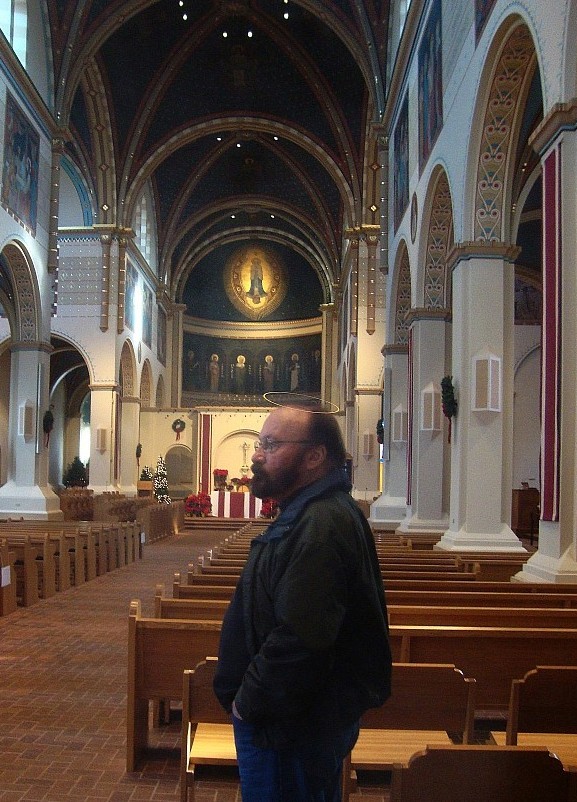
#CharlieWheeler Charlie Wheeler, MD 1926-2022 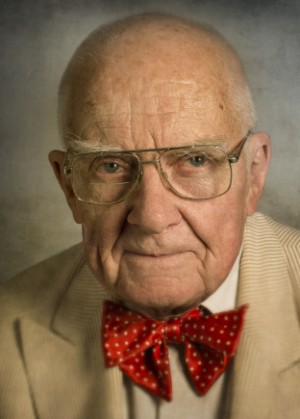 Charlie Wheeler, mayor of Kansas City 1971-1979, mayor when I moved here from Pennsylvania, was a friend of many, including me. He was one of my two baptismal sponors in 2011 and wrote a gracious blurb for the back of my 2015 book of sonnets, Thanks for Noticing. He would want it noted that he was also my state senator 2003-2007. Charlie was a doctor and a lawyer as well as a consummate politician. A creative thinker capable also of whimsy, his life was marked by the premature death of three children and his wife's debilitating illness in later years. Through the courtesy and grace of a mutual friend, I enjoyed a number of memorable feasts with him at the table, and I also liked stopping by the Westport Flea Market where he sat one morning each week at the table with a brass plaque with his name on it. 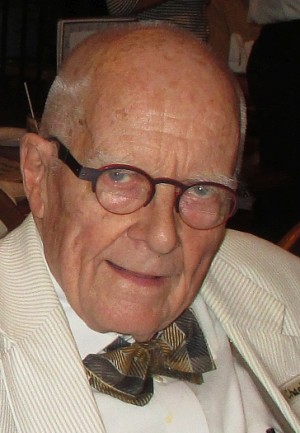 He was always bursting with political opinions and gossip
and
futuristic ideas -- and a great laugh. I
remember many incidents of delight and humor, such as, in his very
senior
years, when he was surrounded by the beautiful young women doting on
him at a reception after a wedding at which I
officiated. Charlie
still knew how to dance! (By the way, the bride and groom had invited
Charlie to say whatever he wanted to during the ceremony, through they
were not sure he would actually show up. If anyone would show up, it
would be Charlie!)
He was always bursting with political opinions and gossip
and
futuristic ideas -- and a great laugh. I
remember many incidents of delight and humor, such as, in his very
senior
years, when he was surrounded by the beautiful young women doting on
him at a reception after a wedding at which I
officiated. Charlie
still knew how to dance! (By the way, the bride and groom had invited
Charlie to say whatever he wanted to during the ceremony, through they
were not sure he would actually show up. If anyone would show up, it
would be Charlie!) I took the second photo at his 89th birthday party at -- of course -- the Westport Flea Market. Here is a link to his Wikipedia page detailing his many roles in public service. The service at his church, also mine, St Paul's Episcopal, Nov 5, is available on YouTube here. Remembrances were offered by Congressman, the Reverend Emanuel Cleaver II, the Honorable Mayor Quinton Lucas, Mr Steve Sturdevant, and daughter Mrs Nina Wheeler Yoakum. The homily was given by the rector, the Reverend Steven King. #221101 STATEMENT ON THE VANDALISM AGAINST THE DIALOGUE INSTITUTE NEWS REPORT IN THE KANSAS CITY STAR WITH PHOTOS 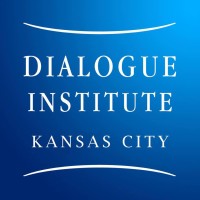 The Center for Religious Experience and Study, a Kansas City area
interfaith institute, joins with other organizations dedicated to peace
and understanding among the rich diversity of humankind in supporting
the Dialogue Institute in Kansas City, KS, endangered by an attack on
its facility in October. The Center for Religious Experience and Study, a Kansas City area
interfaith institute, joins with other organizations dedicated to peace
and understanding among the rich diversity of humankind in supporting
the Dialogue Institute in Kansas City, KS, endangered by an attack on
its facility in October. "For twenty years, the Dialogue Institute has been one of the most effective organizations in the area in building relationships between those of different religious backgrounds and perspectives," said the Rev Vern Barnet, DMn, minister emeritus of CRES. "Dr Eyyup Esen, a leader at the Dialogue Institute, is one of the most energetic, effective, and sweet-spirited proponents of friendship among people of all faiths I have known, and his love for Kansas City is enthusiastic. To have his work, and that of others, answered by physical damage to the property and, even worse, the symbols of hate sprayed on the facility, is a blot upon our community," he said. "Our response must be to redouble our efforts to support the work of organizations like the Dialogue Institute and all who seek a safe community in which the religious teachings of mutual respect and affection can flourish," he said. If you wish to donate to help with the recovery, draw your check to the Kansas City Raindrop Foundation, 4215 shawnee Drive, KC KS 66106. #221030Brooks At the JCRB|AJC Henry Bloch Human Relations Awards Dinnner Honoring Al Brooks 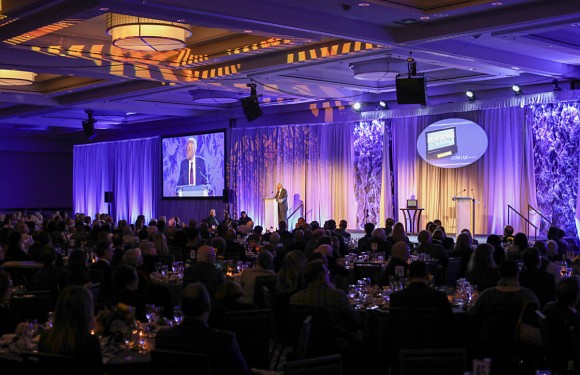 Hundreds gather to recognize civil rights activist Alvin Brooks The Jewish Community Relations Bureau AJC presented Brooks with the Henry W. Bloch Human Relations award. 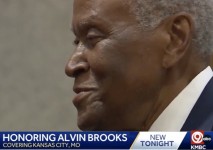 To
the crowd applauding his decades of service for and in Kansas City and
beyond as he was presented the prestigious Henry W Bloch Human
Relations Award, Al Brooks responded that carrying on the legacy of
Henry Bloch was more than he had words to express. To
the crowd applauding his decades of service for and in Kansas City and
beyond as he was presented the prestigious Henry W Bloch Human
Relations Award, Al Brooks responded that carrying on the legacy of
Henry Bloch was more than he had words to express. Here is a link to KMBZ-9's 2-minute video report and a text summary: https://www.kmbc.com/article/hundreds-gather-to-recognize-decades-of-work-from-civil-rights-activist-alvin-brooks-kansas-city-missouri/41813688 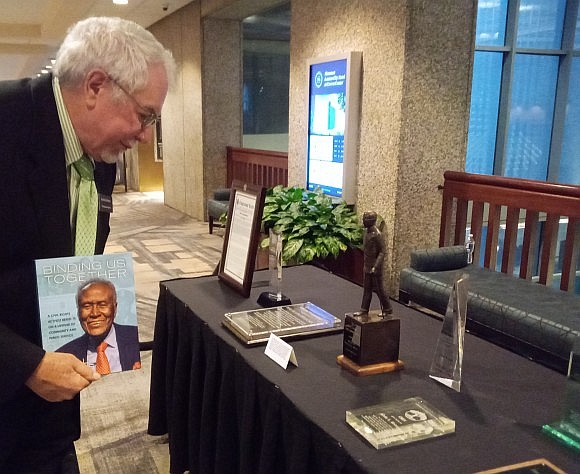 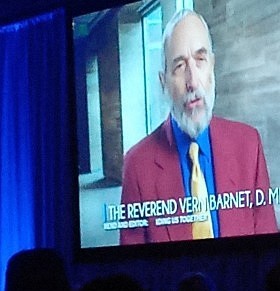 The
flat acrylic award to the right of the Harry S Truman award is the CRES
award, given at the annual Thanksgiving Sunday Interfaith Ritual Meal
in 2002 "for his work as citizen and his career of public service
locally and internationally celebrating religious pluralism and the
dignity of the human spirit in compassion, justice, and leadership." The
flat acrylic award to the right of the Harry S Truman award is the CRES
award, given at the annual Thanksgiving Sunday Interfaith Ritual Meal
in 2002 "for his work as citizen and his career of public service
locally and internationally celebrating religious pluralism and the
dignity of the human spirit in compassion, justice, and leadership." Before Al was brought to the stage to receive the JCRB|AJC Bloch Award, a video of folks speaking about what Al meant to them and to the community and beyond. CRES minister emeritus Vern Barnet was one of those offering loving testimony about the life, character, friendship, and service of the distinguished 90-year old honoree. Vern was the developmental editor of Al's memoir, Binding Us Together: A Civil Rights Activist Reflects on a Lifetime of Community and Public Service, published in 2021. The 300-page generously-illustrated volume won the 2022 Thorpe Menn Literary Excellence Award October 1 Our special page about Al on the CRES website is here. We are grateful for his many years of support and friendship.  #ThgvgSunday 2022 November 13 Sunday 5 pm CT INTERFAITH THANKSGIVING GATHERING Promoting Universal Gratitude 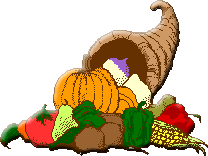
Free -- online and accessible to all. Hosted by the Heartland Chapter of the Alliance of Divine Love with co-sponsors Greater KC Interfaith Council, Alliance of Divine Love, and HeartLove Interfaith Community livestream on https://www.facebook.com/HeartLoveKC or Zoom: http://bit.ly/3zNcLX2 http://www.HeartlandADL.org | http://HeartlandADL@hotmail.com https://www.facebook.com/events/751246239443650/ The annual observance was sponsored by CRES for its first 25 years. This year, 2022, is the 37th year of the tradition and we are grateful to the sponsors for perpetuating the recognition of the place of gratitude in every faith. Groundbreaking for the Alvin Brooks Center for Faith-Justice at Rockhurst University At the November 2 Groundbreaking ceremony and celebration for the Alvin Brooks Center for Faith-Justice
at Rockhurst University, CRES senior associate minister David Nelson,
Al Brooks, and former CRES Board member John Gregory greet one
another as they enter the reception area. 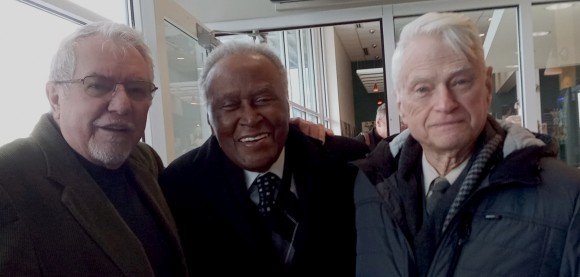 And here is some happy shoveling . . . with Al and family members . . . .  before
which officials of Rockhurst spoke with great feeling about the life
and work of Brooks, and Al, now 90, spoke with generous acknowledgments
of others present and his late wife, Carol, his adoptive mother and
father and biological mother and father, and his children -- and his
frequent question as he considers the blessings of the many
opportunities he has had -- "Why me?" -- and then invited all of us to
ask "Why me?" as we consider how we may be better servants of the
future. Al is distinguished in many ways, and for CRES, as Kansas
City's foremost leader for interfaith understanding. The project was announced in November, 2021, as University President Emeritus the Rev. Thomas B. Curran, S.J., received the Henry W. Bloch Human Relations Award at the JCRB|AJC’s annual Human Relations dinner. Envisioned as a hub for University-related faith-justice efforts and offices for the KC Common Good anti-violence organization, the center will also house a campus chapel. It’s a fitting tribute to Brooks, a living legend in the landscape of social justice, public service and civil rights in Kansas City. Brooks received the Henry W. Bloch Human Relations Award in 2022 and was introduced by President Emeritus Curran at the JCRB/AJC event. 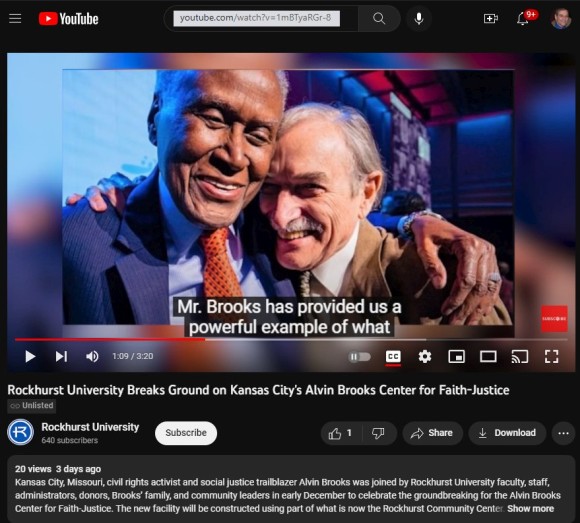 The description under the video reads: Kansas City, Missouri, civil rights activist and social justice trailblazer Alvin Brooks was joined by Rockhurst University faculty, staff, administrators, donors, Brooks’ family, and community leaders in early December to celebrate the groundbreaking for the Alvin Brooks Center for Faith-Justice. The new facility will be constructed using part of what is now the Rockhurst Community Center. Envisioned as a hub for a number of University-related faith-justice efforts and offices for the KC Common Good anti-violence organization, the center will also house a campus chapel. It’s a fitting tribute to Brooks, a living legend in the landscape of social justice, public service, and civil rights in Kansas City. Brooks, 90, has lived most of his life in service to Kansas City. He was among the first Black police officers in Kansas City, Missouri, when he joined the force in 1954. He worked for Kansas City’s public schools, set up City Hall’s first human relations department (becoming the city’s first Black department head), was named assistant city manager, served on the Kansas City Council, and started the Ad-Hoc Group Against Crime, which continues today. It is a legacy of servant leadership that deserves recognition, said Rockhurst University President Sandra Cassady, Ph.D. “In his 90 years on this Earth, Mr. Brooks has provided us a powerful example of what genuine love of a community and its people can lead us to do,” she said. “Though he was never a student, faculty or staff member here, Mr. Brooks is a consummate example of servant leadership in the Jesuit tradition. This center, a concrete commitment to a ‘faith that does justice,’ represents being ‘in the city for good’ in every sense. As a space where the campus community will both celebrate faith and pursue justice, it is only appropriate that it bear the name Alvin Brooks.” For more information about social justice at Rockhurst University, visit https://www.rockhurst.edu/service. The URL is https://www.youtube.com/watch?v=1mBTyaRGr-8 Here are links to photos and to a news report. ------------------------------------------------------------------------ Al's wisdom continues to guide Kansas City, as this letter
of 2022 December 12 to the Board of Police Commissioners proves. No one
else could write such a letter. As a result, the Board appears to have
backed off its rush in hiring a new Police Chief. And The Star printed
this story:------------------------------------------------------------------------ Kansas City Star, The (MO) December 14, 2022. Brooks urges KC police board to delay vote on new chief BY GLENN E. RICE grice@kcsrar.com Alvin Brooks, a former Kansas City police officer and mayor pro tem, on Tuesday asked the Board of Police Commissioners to delay its vote on a new police chief, suggesting more community input and greater transparency is needed. The police board is scheduled to meet Tuesday morning at the police headquarters in downtown Kansas City. While the board has not announced when a vote would take place, it is likely they will meet in private session to discuss the three finalists. Earlier this month, the board announced the three finalists: KCPIYs Acting Deputy Chief Stacey Graves; DeShawn Beaufort, a commander with the Philadelphia Police Department and Scott Ebner, a retired lieutenant colonel and deputy superintendent of administration for the New Jersey State Police. Brooks, who served on the police board from 2010 to 2017 as a member and also as its chair, said the public forum that was held on Saturday did not provide residents with a clear understanding of what the finalists would do to embrace community policing and other crime-fighting initiatives. "As board members you are, of course, aware that cries have come from across the City — including in the press, that the Board has not been transparent in its deliberations in its search for a new Chief," Brooks said in an email sent to the board late Monday. ' 'I believe these suggestions can reduce some Of the perception of lack of transparency. "But I hasten to say that for the Board as a public body, honoring total transparency as provided by law is essential for the community to have faith and trust in your deliberations and conclusions, most especially in the selection of a Chief," he said. In his letter, Brooks urged the police board to conduct three public meetings to be held in the Northland, Midtown and south Kansas City. Each finalist should be asked to respond to the questions: "How do you define Community Policing? If you are chosen to be our next Chief, how and where would you start to implement Community Policing?" Brooks said in April 1992, he along with then-Police Chief Steve Bishop attended a six-week think tank organized by Harvard University, where they developed a community policing model. That plan was brought back to Kansas City and implemented in the Central Patrol Division, where Brooks said he believed there was a reduction in crime. In 1977, Brooks helped organize the Ad Hoc Group Against Crime and served as the director of the city's human relations department, which was organized following the 1968 riots in Kansas City. "I believe the Board in its fiduciary responsibility owes this to our city and to the Police Department," he said. "Please remember that perception over time becomes reality in the minds of those who show an interest in what you do." The selection process has been widely criticized for months by business, community and faith leaders. A coalition that was coordinated by the Greater Kansas City Chamber of Commerce expressed concern that the selection of a new police chief was being done behind closed doors and without the input of residents, businesses and community groups. That frustration spilled over into the public forum that was held on Saturday. Protesters disrupted one of the interviews where they yelled that the process was a scam, the board reneged on its promise to have several public meetings and already had decided among themselves who was going to be the next police chief. On Monday, Mayor Quinton Lucas criticized the process the police board has carried out during its search for a police chief, and said that more time and community input is needed before a final vote. "We weren't really the best at communicating this process, " Lucas said. "We did have our one meeting. And now we're just gonna decide kind of out of nowhere. This is not necessarily the best of processes that I think people would want." Glenn E. Rice: 816-234-4341, @GRicekcstar Here is a report on KSHB: https://www.kshb.com/news/local-news/community-leader-alvin-brooks-advises-kcmo-board-of-police-commissioners-to-not-select-police-chief-tuesday #Ananda A Personal Note 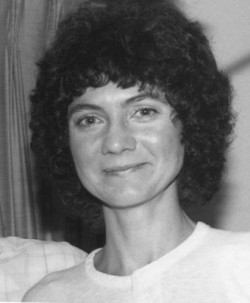 Ananda Barnet, my former wife, died December 16, 2022, in Arcola, IL. I am very grateful to her elder bother, Robert, and sister-in-law, Claudia, now of Nokomis. FL., who oversaw her care during a very long illness. Ananda Barnet, my former wife, died December 16, 2022, in Arcola, IL. I am very grateful to her elder bother, Robert, and sister-in-law, Claudia, now of Nokomis. FL., who oversaw her care during a very long illness. Just as her years of infirmary cannot obscure the joys of our marriage, so her obscurity these last two decades should not minimize the role she played as the first program director for CRES. One of her several areas of expertise was American Indian spirituality which gave special strength to the environmental emphasis in the CRES three-part approach to the sacred. She contributed much to the community, in person, on radio, and in brilliant writing. She was always learning, then mastering, new ideas and skills. She was an insightful, creative, well-organized, determined, and loving person, and especially cherished our son. An obituary appears here with an example of her unique essay style. --Vern Barnet OTHER ANNOUNCEMENTS
Having spawned several other organizations, including the Greater Kansas City Interfaith Council, we continue to offer programs initiated by and through others but we no longer create our own in order to focus on our unique work. For interfaith and cultural calendars maintained by other groups, click here. |
A Free Monthly Discussion Group Led by David E Nelson C R E S senior associate minister president, The Human Agenda “The purpose of a Vital Conversation is not to
win an argument,
in dialog that will add value to the participants and to the world. In Vital Conversations, we become co-creators of a better community. —David Nelson The discussions began May 24, 2002, at the CRES facility by examining Karen Armstrong’sThe Battle for God
2022 Vital Conversations Schedule
#vcJan
Quotations and questions selected by David Nelson
“It’s the great mystery of human life that old grief passes gradually into a quiet tender joy.” --Fyodor Dostoevsky, The Brothers Karamazov Releasing conversation: 1. “They were both born—like their older
sister—with Hurler Syndrome. Their stories are so intertwined in
my memory that I cannot adequately disentangle them.” P. 12. What is Hurler Syndrome and how is it treated? Why is this important in your life Howard? “What’s lost is nothing to what’s found
and all the death that ever was would scarcely full a cup.” --Frederick Buechner
This memoir tells of the author's growing up in New Zealand,
moving to the United States for college, and remaining in the USA for
marriage and raising a family. Beyond the timeline of life's
activities, friends, and family, the author also attempts to describe a
search for transcendence beyond everyday life that the subtitle of the
book refers to as the "joy beyond time." And so it was that I began to shift my focus from an anxious search in the forest of religion to a more restful surrender in the glade of simple trust. It was a shift of focus, not an attainment. I began to know a little of what it mean to rest in the grace of the world and breathe free. I was taken back to the whispers of the divine in the beauties of the natural world, the lives of kind and humble human beings, and to the miraculous stories of homeward return—like that of the prodigal son—I had heard in my earliest days. (p.214) The author ends the book with the following paragraph in which
he ties his boyhood memories of time spent in a small white boat with
his continuing experience of life today. In memory, I can still see my self as a kid floating in the safety of the little white boat. I see a time when I drifted in stillness on the glassy surface of the lake, the beauty around me mirrored in a Beauty within. I see a time when the waters seemed to rise up against me and, even with my brave little brother alongside, I felt vulnerable and afraid. I see a time when a great launch, regal in its trim of polished wood and brass, slowed down its heavy engines and smoothed the angry waves before me. And, as I follow in the wake of this Majestic Apparition, I see—even now—the sun-drenched shores of Home glowing on the farther shore.
- - - - - - - - - - - - - - - - - - - - - - - - - - - - - - - - - - - - - - - - - - - -
#vcFeb
Go Tell It on the Mountain by James Baldwin.
Releasing Conversation: In Baldwin’s book several of the chapters are called “prayers.” Share your name and say something about prayer. What is prayer? How do you pray? What does prayer accomplish? 1. “It was his hatred and his intelligence
that he cherished, the one feeding the other. He lived for the day when
his father would be dying, and he, John, would curse him on his
deathbed.” 17. Describe John’s relationship to and with his father. What was his father’s relationship with John? With God? With himself?
This novel tells a story of teenaged John Grimes living in the 1930s Harlem district of New York City with his African American family and their charismatic Christianity. His stepfather is a deacon in the church and part time preacher who tries to impose restrictions on John and his half brother Roy hoping to prevent their exposure to the worldly and sinful Harlem community. The book’s chronology goes back in time for Part 2 of the book to explore the family’s roots in the American South to tell the stories of step-aunt Florence, step-father Gabriel, and mother Elizabeth. Then Part 3 of the book provides a vivid description of an ecstatic born-again experience of the book's protagonist, young John Grimes. My favorite quotation from the book:
In the above quotation, Gabriel is counting on the grace of God to forgive his sins. Florence, the speaker, reminds him of the damaged souls he’s left in his wake, and she warns him to stop making life miserable for Elizabeth and John or else she will make sure everybody learns about his unsavory past. I’m siding with Florence in the quotation above, and I’m not so sure about the virtue of God’s grace in this case. - - - - - - - - - - - - - - - - - - - - - - - - - - - - - - - - - - - - - - - - - - - - March 9 Wednesday 1-2:30 p.m. on Zoom Meeting ID: 832 3534 6541
Passcode: 076621
Gunfight: My Battle Against the Industry
that Radicalized America
Releasing conversation: Share your name and list an organization you support. Quotations and Questions selected by David Nelson
This change in the American psyche mirrored a corresponding change in politics—Trumpian style in particular. It's hard to say which caused or responded to the other. Was the firearms industry fomenting the radicalization or was it radical, right-wing forces outside the industry that prodded firearms manufacturers down the incendiary and deadly path they are still on? This book tends to give the gun industry and NRA much of the credit. In either case they have: ... built a system that relies on a political police state to enforce 100 percent loyalty: no one can dare ask any questions without immediate repercussion. It is a culture that praises violence, one where 'getting your man card back' means that it's acceptable to do whatever it takes to establish your superiority.This book's story is told from the unique perspective of an insider. The author was actually in the room when many of the marketing decisions were made to take advantage of shifting cultural tides. The author's primary loyalty was to preservation of Public Lands and hunting and fishing, values that at one time were in sync with the interests of gun manufacturers. In clear and concise narrative the author tells of an increasing emphasis toward loyalty to the Republican Party, even when the Party's position did not value conservation issues. The author explains that he stayed within the gun industry for many years in the hope that he could exert some positive influence toward movement in a more wholesome direction. It is notable that his company, Kimber Manufacturing, never did market assault style rifles and continued to emphasize quality and workmanship. But the strain between the industry and his own values—and pressure from his wife and young children—finally convinced him to resign his position in 2020. The industry had moved away from him; he had not moved away from them. - - - - - - - - - - - - - - - - - - - - - - - -
- - - - - - - - - - - - - - - - - - - -
The Immigrants’ New Camera: A Family Collection
NATIONAL POETRY MONTH is a time to explore how words can explore the world is
beautiful ways. Quotations selected, and questions written, by David Nelson
Releasing Conversation: “Poetry is a type of literature based on the interplay of words and rhythm. It often employs rhyme and meter (a set of rules governing the number and arrangement of syllables in each line). In poetry, words are strung together to form sounds, images, and ideas that might be too complex or abstract to describe directly.” [LiteraryTerms.net] “Poets are the unacknowledged legislators of the world.” [Shelley] Share your name and speak a few words about your favorite poem. 1. “Glimmering with the physical things of the world, offering a stepladder to the possible, Wagner’s fifth collection takes us back to awe and wonder.” [Jo McDougall.] What does that mean to you? What would you add in defining poetry and teaching poetry? 2. Maryfrances, could you tell us a few “steppingstones”
in your life that has brought you to this honor? When did you first
flirt with poetry? What events have been significant in your personal
and professional journey that you wish to share with those of us on
this Zoom gathering? Who are some of the poets you admire? How often do
you read poetry? Do you write poetry every day? 3. “The Missouri Poet Laureate enriches
Missourians’ lives throughout the state by fostering the reading and
writing of poetry, through public appearances, readings, workshops, and
digital and social media. “As Poet Laureate,” Ms. Wagner says, “I’d
like to find ways to reach out to people who don’t usually read poetry
or even think they like it.” [Missouri Arts Council Web site]. Tell
us about being Missouri’s Poet Laureate. What has been different during
this period of your life? What has been the response from the public?
How as Covid impacted your time as Poet Laureate? 4. “Specific poetic forms have been developed by many cultures, in more developed, closed or ‘received’ poetic form, the rhyming scheme, meter and other elements of a poem are based on set of rules. Common forms widely used across languages: Sonnet, Shi, Villanelle, Limerick, Tanka, Haiku, Khlong, Ode, Ghazal . . . . Poetry is often thought of in terms of different genres: Narrative, Lyric, Epic, Satirical, Elegy, Verse, Dramatic, Speculative, Prose, Light, Slam.[Wikipedia]. Poetry has played major roles in human history. Religions have used poetry in liturgy and ritual. Revolutions have been empowered, wars have been fought, unions have been made and destroyed, life and death has been honored, humor has been embodied; all this through poetry. What is it about poetry that has made it so central to the human story? 5. “Like most poets, I’ve wanted to touch the human spirit and move the reader. That’s what I want to happen to me as well when I read a poem. Not every poem is easily accessible, and not every poem will have the same impact on a person, but poems abound out there for all of us. I want to help find those poems for people.” [IN KC.] How do you “find those poems for people”? Are there types of poems that appeal to different types of people? Is there a way to discover poetry that will help me “touch the human spirit and move” me? 6. In your recent book, The Immigrants’ New Camera: A Family Collection, you introduce and reflect on a unique culture, a specific family, and several interesting places. I found myself not only learning more about you but also remembering more about myself. One example is “My Mother’s White Lies.” Talk about how living a specific life unites or divides you and others from the realities of others. Can poetry be a force in reuniting a divided community? 7. Poetry, like other art, is more about what is heard and seen than what is written or pictured. That is my opinion, anyway. The “art form method” of discussion helps us to listen to more than words. While we listen, would you read out loud your poem “Raising a Hand” (page 55)? After the reading, I will ask others “What words did you hear? What did you feel? What experiences were you reminded of from your own life? 8.
Amanda Gorman in her poem “The Hill We Climb” at Joe Biden’s
inauguration brought tears of hope to many in this nation and the
world. The nation paused for a moment and for many we felt like a
united and special people. Where else have you witnessed poetry serve
to heal, motivate, empower, challenge, or inspire? NOTE: David says, We
are hoping that beginning in May we will meet both at the library and
by Zoom. I have been thrilled to have participants from outside the
greater Kansas City area who attend and do not want to lose them. - - - - - - - - - - - - - - - - - - - - - - - - - - - - - - - - - - - - - - - - - - - - May 11 Wednesday 1-2:30 p.m. on Zoom & In-Person -- (Notes from last month) Zoom: Meeting ID: 832 3534 6541 Passcode: 076621 Banning Books in libraries and schools. 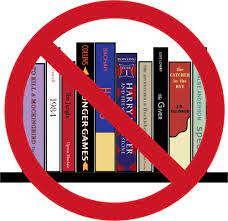 Instead
of one book, be amazed by the variety of books currently on the list
for removing from school libraries. Look over the list and read
one or several and come to share your insight and opinion on this
current issue. Instead
of one book, be amazed by the variety of books currently on the list
for removing from school libraries. Look over the list and read
one or several and come to share your insight and opinion on this
current issue. This will be a hybrid event -- since the pandemic, the first time back at the MidContinent Library, Antioch Branch, in person and also on Zoom. The following books will be available at the library (ask for Vital Conversations or David Nelson): To Kill a Mockingbird by Harper Lee, The Giver by Lois Lowry, Lord of the Flies by Willian Golding, Animal Farm by George Orwell, 1984 by George Orwell, Fahrenheit 451 by Ray Bradbury, The Handmaid’s Tale by Margaret Atwood, Slaughterhouse-Five by Kurt Vonnegut, Harry Potter series by J.K. Rowling, A Wrinkle in Time by Madeleine L’Engle. The following books have been selected and will be discussed: Maus: A Survivor’s Tale: My Father Bleeds History & Maus II: A Survivor’s Tale: And Here My Troubles Began by Art Spiegelman Brave New World by Aldous Huxley All Boys Are Not Blue: A Memoir-Manifesto by George M. Johnson And Tango Makes Three by Justin Richardson Animal Farm by George Orwell Me and Earl and the Dying Girl by Jesse Andrews Nineteen Minutes by Jodi Picoult Fahrenheit 451 by Ray Bradbury The Grapes of Wrath by John Steinbeck Johnny Got His Gun by Dalton Trumbo Book banning is the most widespread form of censorship in the United States, with children’s literature being the primary target. Advocates for banning books fear that children will be swayed by its contents, which they regard as potentially dangerous. A banning is the removal of those materials. Challenges do not simply involve a person expressing a point of view; rather, they are an attempt to remove them from the curriculum or library, thereby restricting the access of others. According to a new American Library Association report, there were 330 “book challenges” in the fall of 2021, an uptick from the same periods in recent years. “Parents, activists, school board officials and lawmakers around the country are challenging books at a pace not seen in decades.” New York Times Questions: * What is this book about? Give a brief synopsis. Why do some want it banned? Articulate the argument. What is your opinion? * What is the role of librarians? Parents? Library Boards? School Districts? Newspapers? Television? * How do you choose which books to read and share with others? Where do individual rights end and group rights take over? * What are our responsibilities as parents and citizens? What can we do influence others? - - - - - - - - - - - - - - - - - - - - - - - - - - - - - - - - - - - - - - - - - - - - June 8 Wednesday 1-2:30pm Zoom: Meeting ID: 832 3534 6541 Passcode: 076621 Russian Aggression Against Ukraine. With several Ukrainians and Russians present we will have a conversation about their histories, the current war and why this is important to us. To prepare for this conversation you can read, watch the news, visit with your friends, and engage with others. Below are listed three books. One is a non-fiction by a journalist. One is a novel. One is a complete history. Discussion items include: Name the dimensions of the crisis in Ukraine. Why is a war happening? What is the historical relationship between Russia and Ukraine? What is Putin’s justification in invading Ukraine? What is the role of religion in this situation? How can we be allies for a more peaceful world? What can we do right now? What are some actionable items? Black Square: Adventures in Post-Soviet Ukraine by Sophie Pinkham. 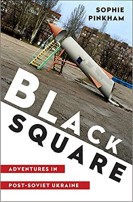 Ukraine
has rebuilt itself repeatedly in the last century, plagued by
corruption, poverty, and substance abuse; ravaged by ethnic clashes and
Russian aggression. Ukraine
has rebuilt itself repeatedly in the last century, plagued by
corruption, poverty, and substance abuse; ravaged by ethnic clashes and
Russian aggression. Sophie Pinkham saw all this and more in the course of ten years working, traveling, and reporting the Maidan revolution of 2013-14, Russia’s annexation of Crimea, and the current war against Russian invasion. Sophie has current articles in The New York Times. Brisbane: A Novel by Eugene Vodolazkin. In this richly layered novel by the winner of Russia’s biggest literary prizes, a celebrated guitarist robbed of his talent by Parkinson’s disease seeks other paths to immortality. Expanding the literary universe spun in his earlies novels, Vodolazkin explores music and fame, belonging and purpose, time and eternity. At the stunning finale of Brisbane, all the carefully knit stitches unravel into a riddle: Whose story is it – the subject’s or the writer’s? Are art and love really no match for death? Is Brisbane, the city of our dreams, our only hope for the future? The Gates of Europe: A History of Ukraine revised edition by Serhii Plokhy. A Ukraine is embroiled in an ongoing struggle with Russia to preserve its territorial integrity and political independence, this celebrated historian explains that today’s crisis is a case of history repeating itself: the Ukrainian conflict is only the latest in a log history of turmoil over Ukraine’s sovereignty. This revised edition includes ne material that brings this definitive history up to the present, from the election of Volodymyr Zelensky to the tole of Ukraine in Trump’s impeachment. As Ukraine once again find itself at the center of global attention, Plokhy brings its history to vivid life as he connects the nation’s past with its present and future.
by Serhii Plokhy, Ralph Lister , Сергій Плохій This book is a history of Ukraine, and since archeologists have found signs of human habitation dating back to 40,000 years ago, it is a long history. In Classical Greek times it was on the edge of the known world. Greek mythology designated it as the land of the Amazons, and the Greek hero Achilles was believed to be buried there. Herodotus described the region in his Histories and reported on the Scythians who lived there. Later during the time of the Roman Empire their cities on the Black Sea coast needed to be defended against the Sarmatians who were nomads from the east. Most of that part of the world became inhabited by people referred to as Slavs, but since the Slav occupation was not accomplished by overt invasion we don’t know very much about where, when, or how they came to be indigenous inhabitants of the land. The name Ukraine means “frontier” or “borderland”, and it follows that their long history is filled with instances of multiple crossings of its border by traders, missionaries, nomadic horsemen, and organized armies from multiple directions. In the ninth and tenth centuries the Vikings passed through from the north seeking trade with the Byzantine empire. They brought the term “Rus’” which was later applied to the name for the polity that developed from the tenth to the mid-thirteenth centuries with its center at Kyiv. Scholars today refer to that polity as Kyivan Rus'. The Cathedral of St. Sophia was constructed in Kyiv during this era (11th century). Kyivan Rus' development stretched over hundreds of years, but its end came abruptly. The city of Kyiv diminished in importance under Mongol rule (also known as the Golden Horde). In a decisive battle in 1362, Lithuanian and Rus’ forces defeated the a leading tribe of the Golden Horde. The Polish–Lithuanian Commonwealth subsequently controlled the Ukrainian region for many years. It was during this time that the term “Cossacks” came to be used to describe what at first were roving bandits and later evolved into a force with which regional powers needed to consider. Over time the term Cossack became synonymous with Ukrainian warriors who sometimes served as mercenaries on opposing sides. In 1476 the first tsar and Muscovite ruler, Grand Prince Ivan III, manage to free his country to the north from the Mongols, and his kingdom would later grow to become a regional power. In an effort to free Ukraine from the Poles, the Cossacks made an agreement with Muscovy in return for their protection. Russia’s claims to Ukrainian territory date to this event. Unfortunately the promised protection to be provided by Muscovy didn't materialize. The Khmelnytsky uprising unleashed a long period of wars that many historians refer to as the Ruin. Eventually the Ukraine region was divided between the Ottoman Empire, Polish–Lithuanian Commonwealth, and Muscovy-Russia. Subsequently, the competing empires of Prussia, Austria, and Russia divided up the region. This time period is filled with so many shifts in boundaries that I'll not try to offer a summary in this review. This book contains several chapters on Ukrainian cultural, literary, and religious history. After the the Crimean War considerable industrialization occurred in southeastern Ukraine due to the presence of coal and iron ore. Consequently there was labor unrest, and it was this discontent of the impoverished workers that eventually led to the 1917 revolution that deposed the Czar. After the 1917 Russian Revolution and World War I, Ukraine was filled with warring groups of outlaw bandits, independence revolutionaries, White Russians, and the Red Russians. As part of the Soviet Union under Stalin's rule, Ukraine became victim of the Holodomor (a human caused famine). Ukraine emerged from World War II as one of the Soviet Republics. It had gained territory with the boundaries we know today, but its people and economy were in a sorry state. The book provides an interesting accounting of post-war Soviet history including the death of Stalin, the era of Khrushchev and Brezhnev, the 2004 Orange Revolution, and the breakup of the Soviet Union. The edition of the book I read was published in 2015, which was after the 2014 Russian annexation of Crimea and invasion of Donbas but before the current 2022 war. In the final chapter this book offers the following prognosis for Ukraine's future. In the book's Epilog the following description of the Russian mindset describes the motivations for the partial invasion then, but I think also applies to the current war. The book also contains numerous maps, a timeline of Ukrainian history, and a listing of "Who's Who in Ukrainian History." ------
The Memory Keeper of Kyiv This
novel's unique feature is to include a fictional account of the 1930s
Ukrainian Holodomor. The book’s story alternates between two separate
narrative chains. The first narrative takes place in the early 2000s in
the USA and features a grieving widow who together with her young
daughter is having difficulty recovering from the death of her husband
from a car accident that occurred about a year earlier. The second
narrative takes place in the early 1930s Ukraine where a young bride
faces trauma and shock when her family’s way of life is brutally
changed during the collectivization of their rural village. Altogether,
close to 4 million people perished in Ukraine as a result of the
famine, more than decimating the country—every eighth person succumbed
to hunger between 1932 and 1934. Portions of
this story will bring you to tears. However, the book also contains
romance and parent-child love which will make you feel good. Late in
the book the story contains a poignant heart warming communication
between great-grandmother and great-granddaughter. And the very end of
the Epilogue contains a final surprise. - - - - - - - - - - - - - - - - - - - - - - - - - - - - - - - - - - - - - - - - - - - July 13 Wednesday 1-2:30 p.m. Zoom: Meeting ID: 832 3534 6541 Passcode: 076621 Link for Zoom: https://us02web.zoom.us/j/83235346541
Aristotle and Dante Discover the Secrets of the Universe by Benjamin Alire Saenz
Questions for discussion Here is A Reading Group Guide to: Aristotle and Dante. Enjoy.
This
is a novel that explores the world of teenage angst among two male
friends dealing with their slow discovery leading to acceptance of
mutually homosexual feelings. The two friends happen to also be of
Mexican ancestry living in 1980s El Paso, Texas, so there's a bit of an
exploration of that cultural setting. But it's fair to say that neither
of these young men fit comfortably in the surrounding youth culture and
instead lean toward being nerds. - - - - - - - - - - - - - - - - - - - - - - - - - - - - - - - - - - - - - - - - - - - - #vcAug
Friends: I understand that we're talking about my book, Religion and the Critical Mind, on August 10. Coincidentally, I'm in the process of revising and enlarging that book. So, insofar as you have the time and wherewithal while reading the book, I would much appreciate it if you would email questions and criticisms you think I should consider while revising it. I'll have someone taking notes on August 10th, but something might be missed that is important for the revision and enlargement. My email: antonkjacobs@gmail.com Many blessings. Anton
0 Releasing Conversation:
David Brooks, in his New York Times column July 29, wrote, “Everybody
is grabbing from the world bits and pieces of thought and fashion that
they can mishmash into their personal way of being. The more
sources you borrow from, the more interesting your self is likely to
be.” Share two or three of
the sources you have borrowed from to be the interesting person you are
today. Who have you admired and borrowed from to have the wisdom and thoughts you have today? Ten Meta-Theological Claims.
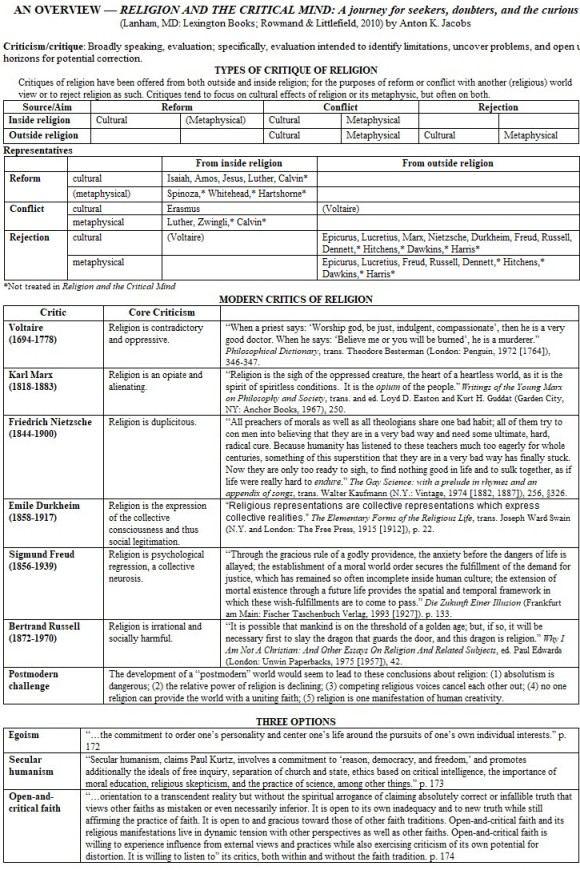
From that beginning the book then devotes one chapter each to Voltaire, Karl Marx, Friedrich Nietzsche, Emile Durkheim, Sigmund Freud, and Bertrand Russel. A penultimate chapter discussing postmodernism is provided before a final chapter in which the author give his "case for faith and religion." All of these highlighted critics of religion were versions of being atheist (debatable in Voltaire's case). Durkheim, though an atheist, recognized a societal value provided by religion while the others thought the world could be a better place without religion. Each of the chapters provide a biographical historical overview of the chapter's character and a description of their philosophical positions which is then followed with "some reflection" offered by the author. In general these reflections are the author noting the particular type or view of religion to which that particular critic is addressing his critique. The criticism offered by each individual described by this book has merit (in my opinion) when considering their social context and their perception of religion. Late in the book the author suggests that these critics are not the enemies of religion, but rather "they are the kind of prophetic antagonists religion needs to keep it honest." I was glad to read in the second from last chapter that the concept of postmodernism is confusing because that is how I have experienced the concept. A common definition is "there is no ultimate truth." Somehow that doesn't quite capture its complexity. Postmodern
thought is multi-faceted, involving countless esoteric
interdisciplinary theses and debates about every aspect of life ...
.(p.161) This leads to the final
chapter where the author makes a reply to the previously discussed
history of criticism with his own "case for faith and religion." After
providing some clarification of definitions the author provides a
thorough discussion of his ten claims "toward an open-and-critical
faith" which are listed below.Postmodern thought is considerably more nuanced, varied, and conflicted than I have presented it. ... [I] have identified these three themes as typically present in postmodern thought: (1) There seems to be no transcendental and ultimate grounding for claims to truth; (2) the world is fragmented by competing and conflicting interests with no universally accepted formula for mediating between interests; and (3) the power of domination is subtle and frequently "hidden."(p.162) 1. There is inherent in human experience a sense of the sacred. 2. The Holy is ultimately incomprehensible. 3. Religion is a social institution. 4. Faith is a matter of ultimate concern. 5. Faith is a matter of letting go. 6. Faith grows best in a community. 7. Belief (i.e., theology) is a journey, not a destination. 8. Worship is a matter of the heart. 9. The experience of the Holy gives rise to a sense of incongruity between the Sacred and the world that calls to action. 10. The experience of the Holy gives rise to a sense of solidarity with all of humanity. The author reviews the aforementioned claims from the perspective of a Christian background and Western thought. However, he presents them is a way that they can be adapted to other faith traditions and cultures. I received a copy of this book from the author for purposes of review. It it my understanding that he plans to update and republish the book in the near future. - - - - - - - - - - - - - - - - - - - - - - - - - - - - - - - - - - - - - - - - - - - - September 14 Wednesday 1-2:30 p.m. on Zoom and in person. The Mountains Sing: A Novel by Nguyen Phan Que Mai. 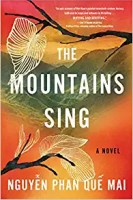 Vivid, gripping, and steeped in the language and
traditions of Vietnam, this novel brings to life the human costs of
this war from the point of view of the Vietnamese people themselves,
while showing us the true power of kindness and hope.
Vivid, gripping, and steeped in the language and
traditions of Vietnam, this novel brings to life the human costs of
this war from the point of view of the Vietnamese people themselves,
while showing us the true power of kindness and hope. “A luminous, complex family narrative that spans nearly a century of Vietnamese history…the novel resembles a choral performance with multiple voices.” I have ten copies of this novel you can borrow from me given to us by the Estes Valley Library where it was the “One Valley – One Book” read. David writes-- We
all have a "Vietnam Story." Some of you served in the US military in
Vietnam. Some of you were part of protests against war. Some have read
about this time in America and remember parents and others talk about
Vietnam. Many of us know Vietnamese who have become part of our
community and our friends and family. This book shares a story
from a woman who experienced it first-hand. You can hear her on
this YouTube podcast. I still have books to hand out if you would
like one to read. Just contact me and I will bring it if you are
in the area. Releasing Conversation: Share your name and briefly share your “Vietnam Story.” 2.
“My fingernails dug into my palms. I didn’t care what war meant. I just
wanted it to return my mother to me, give me back my father and my
uncles, and make our family whole again.” (76) War
in Vietnam was brutal to families. North and south were in civil
division. Outside armies from several other countries were engaged. For
decades it almost became normal. Do you understand Vietnam better after
reading this novel? Explain. 4.
“After my mother had departed with Auntie Duyen, I went out to the
backyard, Little House in the Big Woods in my hands. How lucky for this
American girl to be anchored by her parents, while mine had drifted so
far away. I turned to the final page, where Laura had been snugly in
her bed, with her mother in her rocking chair knitting and her father’s
music and singing voice filling their cozy home with happiness.” (102) Why was this story so precious? Do you have a book that serves in such a way for you? 6.
“Yes, they dumped plenty of it onto our forests and jungles. To make
leaves fall off trees, so they could see us soldiers from the North.
But whatever they sprayed also killed small living thing. I didn’t know
what the chemical was called, until after the war. It has a beautiful
name: Agent Orange.” (127) What else do we know about the use of Agent Orange?
I
was attracted to this novel because it describes Vietnamese history and
the Vietnam War from the view of the people living in the North, and it
is told in the voice of women. Many of the stories recounted by this
book were inspired by the author's own family experiences and those of
other Vietnamese she knows. The book's narrative brings to life some very human experiences of those who were perceived by most Americans as the enemy, but it is in no way a political defense of the North. There's plenty of criticism of all sides in the war, and this book highlights the misery and damage done to people's lives. It makes it clear that Americans were not the only ones who may have come home from the war suffering from PTSD. Many returnees at the war's end had missing limbs, and others simply didn't return. One of the lingering mysteries hovering throughout this book is the unknown fate the 12-year-old narrator's father who had been a Viet Cong (PRG) soldier in the South. Her mother who had been a Viet Cong medic did return at the war's end, but she was changed. She was home, but not home, for she was so lost in the war she forgot that I was her own daughter. This book begins with the first person narrative of a twelve-year-old girl witnessing the 1972 bombing of Hanoi, and this girl's narrative is then followed in the first person narration of her Grandmother recounting her experiences going back to the 1930s. From this point these two narratives are told in alternating chapters, one providing a post war narrative and the other giving the underlying history leading up to the war. In this way we as readers are informed of the multigenerational trauma experience by the Vietnamese during the twentieth century. The Grandmother's narrative tells of the 1930s French colonial rule, the 1940s Japanese occupation, the 1945 Great Hunger and the 1954 land reform which are parts of Vietnamese history with which most Western readers will be unfamiliar. The story of how the Grandmother fled with five of her six children due to threats to her life resulting from land reform hysteria provides the core drama for this book. The separations and dislocations created by this event stay with the family all through the 1955-1975 Vietnam War and are not resolved until the end of the book in the 80s. From the young granddaughter's narrative we learn that she is an aspiring writer which I presume to be the voice of the book's author—who is obviously a writer—describing the sorts of emotion which motivative a writer in their craft. When Uncle Minh died, I took my notebook to the back of the house. Squatting on the ground, I wrote for an uncle I'd been robbed of, who was a leaf pushed away from its tree, but at its last moment still struggled to fall back to its roots. I wrote for Grandma, who'd hoped for the fire of war to be extinguished, only for its embers to keep burning her. I wrote for my uncles, my aunt, and my parents, who were helpless in the fight of brother against brother, and whose war went on regardless of whether they were alive, or dead. This book is a saga of tribulation tearing away at four generations of a family. But it is also a tribute to the human spirit's ability of live on, the strength of familial love to endure, and in the end the need to forgive. At the end of the book there is an essay titled, "Climbing Many Mountains: An essay by Nguyễn Phan Quế Mai." I believe it adds poignancy to the book to learn of the author's background that is provided in this essay. Here's A LINK to that essay. - - - - - - - - - - - - - - - - - - - - - - - - - - - - - - - - - - - - - - - - - - - - October 12 Wednesday 1-2:30 p.m. on Zoom only this month -- refresh/reload your browser if zoom link https://us02web.zoom.us/j/83235346541 does not work. 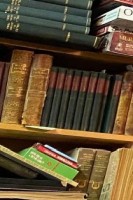 A Bookstore Visit -> Steels Used Books in Gladstone. A Bookstore Visit -> Steels Used Books in Gladstone. David Steel will introduce himself and his bookstore at 7313 N Oak Trafficway in Gladstone. Because of the size of the bookstore, regular participants in Vital Conversations are requested to join in the "location" Zoom meeting. Do you have a favorite bookstore, with used books or otherwise? Do you have perhaps a childhood memory of a bookstore or a story about discovering a book as a teen-ager that made a difference in your life? Has your practice of buying books shifted from physical bookstores to online commerce as the internet has developed? What is the future of bookstores, and particularly used bookstores? You are invited to visit and thank David Steel before and/or after October 12 Wednesday 1-2:30 pm. “Reading is magic and a mysterious activity that feeds the mind, transports the imagination, soothes the soul, and expands life. It is most often done in solitude and yet connects us to so many others both near us and far from us. Many readers enjoy the opportunity to share their reading discoveries and to expand from the sharing of others. Reading is an important aspect of our common humanness.” --David E. Nelson “The act of reading alters your brain. It does so, first because your thoughts are brain processes. When you read, neural patterns come and go as the words pass before you. Some of those patterns also give rise to memories, subtle molecular changes in cells and the signaling mechanisms that link them. And third, your brain is physically transformed by learning to read. The networks that underlie vision and language are changed.” --Peter Godfrey-Smith NYTimes Book Review 1/14/18 Releasing conversation: Share your name and identify your favorite used bookstore. Briefly tell about the store and why you enjoy visiting it. Questions for David Steel: Tell us the story of your bookstore. When was it started? How has it changed? How is your store organized? How do you determine what to pay and what to charge? Do you want more used books? Why have many independent bookstores not survived in recent decades? Questions for general discussion on Zoom: Do you read books online, eBooks, or listen to audio books? What percentage of your reading? What does the future of reading look like to you? Tell us about your reading patterns, habits, and insights. You can bring your general questions about reading, discussion of books, Vital Conversations, and other related topics. Since there is no specific book assigned for this gathering, we can be a bit more informal about what we talk about. - - - - - - - - - - - - - - - - - - - - - - - - - - - - - - - - - - - - - - - - - - - - #vcNov
Releasing Conversation: Share your name and say something about your faith using the categories listed below from page 3-4.
PART I “NO” pages 1-80
If
we're talking about staying or leaving Christianity, what definition of
"Christianity" are we talking about? I appreciated that fact that the
author acknowledged that "Christianity
doesn't refer to one simple thing. Like any religion, Christianity is a
complex mixture of many different things...". I've copied the eleven
different facets of Christianity identified by the author in the
following spoiler. (view spoiler) I
am not writing this book to convince you (or myself) to stay Christian.
Nor am I writing. his book to. convince you (or myself). to leave
Christianity identity behind forever. Instead, I want to think through
the question of retaining or shedding Christian identity with you
looking over my shoulder. And I want us to consider how we are going to live, whether or not we identify as Christian. The book is divided into three parts; Part I gives reasons to say no to Christian identity, Part II gives reasons to say yes to Christianity, and Part III explores the question of how we're going to live whether or not the decision is yes or no. - - - - - - - - - - - - - - - - - - - - - - - - - - - - - - - - - - - - - - - - - - - - December 14 Wednesday 1-2:30 p.m. on Zoom and in person. https://us02web.zoom.us/j/83235346541 https://us02web.zoom.us/j/83235346541?pwd=U3kwTXU4d0hJTnRBUWkvR05TanZXdz09 Meeting ID: 832 3534 6541 Passcode: 076621 Zen and Happiness: Practical Insights and Meditations to Cultivate Joy in Everyday Life by Joshua R. Paszkiewicz 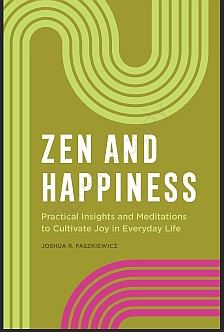 Vern's January review - link Life is filled with thrilling highs, crushing lows, and everything in between. But often, we spend too much time planning for and reacting to our experiences, rather than simply “being” in them. Zen tradition strips away all your preconceived notions of what is means “to live” and teaches you have to let go and be present so you can find bliss in the everyday. After reading a variety of books about Buddhist, I found this one to be especially refreshing and enlightening. It is a simple, yet profound, guidebook you can use in both your busy and your relaxed life. Joshua, a multireligious cleric and scholar who trained in Zen traditions in Japan, Korea and Vietnam, will be / was with us to share his journey and wisdom. PHOTO BELOW: The first full frame from the in-person OWL shows a top small horizontal image of the full room and the two images below are two of those speaking. The other images are from remote participants on Zoom; alas, the screen shot did not capture all the participants.  DAVID'S DISCUSSION GUIDE “Bodhidharma is widely considered to be the progenitor of the Zen tradition. His core teaching was that Zen is ‘a special transmission outside of the scriptures, that is not dependent on words or letters, but which directly points toward the true nature of mind, allowing one to become awakened.’”...”Zen is a method of holistically and meticulously examining your own life and overcoming the commonly garnered inaccurate, and often inadequate conceptions of how life works.” (2) It sounds like Zen is more about my life than about past lives and great minds and teachers. Is that accurate? Can you share steppingstones in your life that illustrate? In the section of misconceptions of Zen, you respond to these myths: Zen is undefinable. Practicing Zen means becoming a Buddhist. Zen is a form of meditation. Zen is supposed to be difficult...Rather, the central and most universal discipline of Zen is the mutual tending to an ongoing mentored relationship between a student and a teacher.” (4-5) How do you and others find the teacher and discern she/he is the right teacher? Is having a teacher always essential? “The Four Nobel Truths 1. Suffering exists in ways big and small 2. The Cause of Suffering – We become infatuated with impossibility because we perceive things to be in ways others than they really are. 3. The End of Suffering – the Zen path is for people prepared to transcend the theorizing and storytelling, to get to work on the things that can be known and that can be worked on. 4. The Eightfold Path – right view, right intention, right speech, right action, right livelihood, right effort, right mindfulness, and right concentration.” (8-11). Looks easy. Is it? “Zen does not require belief as it is commonly understood nor the religiosity and metaphysics that are found in its parent and competing Buddhist traditions. Zen retains no premodern notions of biology and cosmology found in Buddhist orthodoxy, for example...Zen has freely co-opted practices from other Buddhist schools and employed them toward the aims and objectives of the Zen tradition --- namely, the full awakening of its adherents, in this very lifetime, as liberated, aware, and fully human, happy beings. Zen, in its simplest form, require only that people show up and try. In fact, the most classical instruction for the basics of entering the Zen way is simple, and perhaps a bit crassly, the ‘sit down, shut up, and pay attention.” (13) I will share my story from North America Assisi. “Do you have any questions?” “The discipline of wearing some form of habit relating to Zen can prove both easily doable and useful to new practitioners...wear your habit to call your mind to your mindful practice throughout the day. Each time you find your attention drawn to the beads/necklace/scarf/whatever, through its weight, through adjusting its position, or even when someone asks about it, take a moment to enjoy several slow, deep breaths ---or at least the spirit of them, as circumstances might demand.” (61) I wondered why I enjoy wearing beads, now I know. Thanks! Zen practice is almost always about awareness. The same practice regard that can manifest this self- inventory as a Zen practice can transform your present experience from a life suspended to a life embodied.” (88) What does “life suspended to a life embodied” mean? How will I recognize that I have made the transformation? “The word SAMADHI refers to a particular variety of concentrated meditative absorption wherein time and space – and perhaps even self – seem to fall away to the eternity that underpins every moment.” (112) Have your experienced this and are you willing to talk about it? “The great Zen Master Kyong Ho once said, ‘Don’t hope for a life without problems. An easy life results in a judgmental and lazy mind.’ He then went on to invoke the advice of sages of the distant past, who always invited practitioners to ‘accept the anxieties and difficulties of this life.’ For this exercise, regard your meditation practice less as a place to zone out and more as a place to tune in. And ultimately, a place to accept your present reality and act accordingly, with wisdom and grace.” (114) Why practice Zen then, if it does not rescue me from my brokenness? - - - - - - - - - - - - - - - - - - - - - - - - - - - - - - - - - - - - - - - - - - - - Click here for - - - - - - - - - - - - - - - - - - - - - - - - - - - - - - - - - - - - - - - - - - - - Selections are subject to change. For Zoom
link and additional information,
|